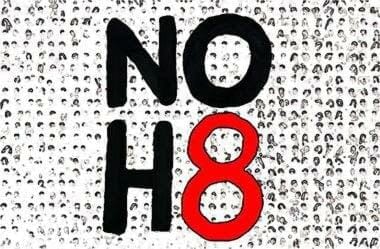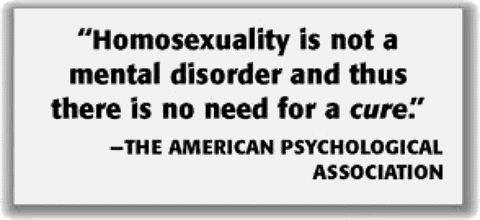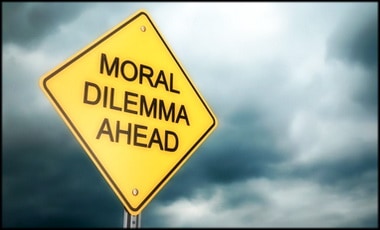(Editing and adding to my 2017 updated version)
I was challenged after I noted that every major religious and moral leader of note never endorsed or supported same-sex marriage. Here is the response to this challenge.
A point Dennis Prager makes is that this is the first time in human history where a “liberal elite” thinks it knows better than all previous religious, political, and moral thinkers before them. I have been challenged on this point and so I enter here a response to some of it. But first the audio portion in which discussion took place over:
Here is the small portion of one of the conversations that emboldened me to post this information:
Initial “Religious” Challenge:
Also, this is not just a matter of discrimination based on sex. It is also a matter of religious persecution. There are religious institutions where gay marriage is condoned and officiated just as heterosexual marriage is. To list a few, Buddhism, Satanism, Wicca, Paganism, the Metropolitan Community Church, the Old Catholic Church, the United Church of Canada, the United Church of Christ, the United Church of Australia and there are even more!!! Just as they would not dare to tell you what to do with your religion, so should you not dare to tell them what to do with theirs. If you believe in freedom of religion, you cannot be against gay marriage. You cannot control what others do with their religion. That is one of the founding principles of this nation. And that is what this really boils down to in the end. It is a matter of control. You seek to control others. You seek to tell others how they are supposed to live their lives. That is the antithesis of freedom. For someone as obviously intelligent as you are it is extremely disheartening that you cannot see something this simple.
After I refuted the world religious challenge of Buddhism (see beneath this conversational example that took place HERE), I got this response:
…I listed a lot of churches that condone gay marriage. One of them was mistaken and you spend how long arguing against it while ignoring every other one? I made a mistake on Buddhism. What of the rest I listed and the many more that I didn’t?
To which I responded:
I wish to clarify something I said. In the historical past, same-sex marriage has never been accepted. While polygamy, concubines, and the like have been accepted in cultural practice. Homosexuality being on equal footing with other forms of marriage has never, never been a practice accepted by any religion or culture. Wiccan, Satanism, and liberal forms of the world religions (Christianity, Judaism, Buddhism, and the like) have only recently endorsed such a view. Since the “sexual revolution” of the 60’s when radical Marxist ideals were injected into Western thinking, writ large. So even your list is a new phenomenon.
I did mention paganism in the past. What I was saying is that men in historic pagan thinking/actions controlled women so that they were prostitutes at the local temple and a place for men to stop and “give sacrifice” to the gods. Other aspects that paganism and other cultures practiced that were harmful to women that Christianity helped cure were (below — partial list) only made possible by a faith that lifted women up. Something modern day feminism and radical gender equality movements do not do, or cannot do… since Wiccan practices do laud – for instance – the older pagan prostitution practices that subjugated a whole swath of women to serve men in horrible ways:
Paul, who often gets a bad rap for his perceived low view of women, considered at least twelve women coworkers in his ministry.* Paul clearly had a high view of women: “There is neither Jew nor Greek, slave nor free, male nor female, for you are all one in Christ Jesus.” The earliest Christians recited these remarkable, countercultural words as a baptismal confession. Widows, far from being abandoned, were cared for, and older women were given a place of honor. In light of all of this, is it any wonder “the ancient sources and modern historians agree that primary conversion to Christianity was far more prevalent among females than males”?
In recent history, Christians were responsible for the banning of three despicable practices inflicted upon women around the world. Christian missionaries pressured the Chinese government to abolish foot binding in 1912. This practice was done for the sole reason of pleasing men—”it made a woman with her feet bound in an arch walk tiptoe and sway seductively.” In 1829 the English outlawed the Indian practice of suttee, in which widows were burned alive on the funeral pyres of their husbands, because of Christianity’s teaching regarding widows and women. Finally, Western countries influenced by a Christian view of women and sexuality have condemned clitoridectomy (female genital mutilation), a gruesome practice that is still common in Muslim countries in Africa and the Middle East.
Sean McDowell and Jonathan Morrow, Is God Just a Human Invention? And Seventeen Other Questions Raised by the New Atheists (Grand Rapids, MI: Kregel Publications, 2010), 230-231.
Historian Alvin Schmidt points out how the spread of Christianity and Christian influence on government was primarily responsible for outlawing infanticide, child abandonment, and abortion in the Roman Empire (in AD 374); outlawing the brutal battles-to-the-death in which thousands of gladiators had died (in 404); outlawing the cruel punishment of branding the faces of criminals (in 315); instituting prison reforms such as the segregating of male and female prisoners (by 361); stopping the practice of human sacrifice among the Irish, the Prussians, and the Lithuanians as well as among other nations; outlawing pedophilia; granting of property rights and other protections to women; banning polygamy (which is still practiced in some Muslim nations today); prohibiting the burning alive of widows in India (in 1829); outlawing the painful and crippling practice of binding young women’s feet in China (in 1912); persuading government officials to begin a system of public schools in Germany (in the sixteenth century); and advancing the idea of compulsory education of all children in a number of European countries.
Wayne Grudem, Politics According to the Bible [Grand Rapids, MI: Zondervan, 2010], 49-50.
My goal is not to refute every example [you give]. Yes, extreme leftism in Christianity is nothing new. In fact, the term “fundementalist” was coined in the 1920’s. In fact, a free book about this movement by one of its founders is here, “Christianity & Liberalism“
And of course Paganism is [against treating people with humanity]. At least historical paganism, [modern paganism in the West adopts the Judeo-Christian ethic]. Of course I deal with this in my book as well.
With that example of a conversation, I wish to officially give my readers an insight in how to refute such thinking (that major world religions supported same-sex relationships). A proper understanding of Buddhism regards all marriages as mundane. In fact, even love in Buddhistic understanding is mundane and is rejected as anything based in reality — which is also key to this discussion. Here are some actual historical cases that the Buddha interacted with as well as more recently the Dalai Lama dealing with the issue.
….there was a case of a gay monk who was overcome by sexual desire and could no longer restrain himself. He was seducing his friends and novices to have sex with him. They rejected him so he left the monastery and had sex with men who were elephant keepers and horse keepers. When news spread around the entire Buddhist community that he was homosexual, the Buddha was alerted to the problem and he issued a rule for the community not to give any ordination to a homosexual, and those ordained gays are to be expelled. (Vin.I, 86).
The Buddha was more tolerant of lesbianism than male homosexuality. Nuns who were caught in lesbian practices were not expelled from the order. They must confess to the fellows about their practice, and then the offense will be redeemed. (Vin. IV, 261)
The monastic rules do not guarantee Buddhist monasticism is entirely free from homosexuals. Indeed, they only say that monks and nuns are required to live a celibate life. Often in history, the monastic community has been plagued by homosexual scandals.
In Thailand, the worst such scandal took place in 1819, during the reign of King Rama II, when a high-ranking monk, a Somdet who was also the abbot of Wat Saket who had just been promoted to take the position of the Supreme Patriarch, one day was found guilty of enjoying homosexual activities with some of his good-looking male disciples.
It was a shock to all Buddhists of the time, and the case was considered the scandal of the century of Buddhism in Siam.
Interestingly, the graveness of the mistake was not severe enough to defrock him, although the King had him removed him from his position of honour and ordered him to leave the royal monasteries.
As for the lay homosexual people, the Buddha gave no rule or advice as to whether they should be allowed to marry or not. The Buddha posted himself simply as the one who shows the way. He did not insist that he had any right to enforce on others what they should do. With this principle, the original teachings of the Buddha do not cover social ceremonies or rituals. Weddings and marriages of all kinds are regarded as mundane and have no place in Buddhism.
[….]
Unlike Christianity, where gender is a part of God’s creation, Buddhists see genderisation as a sign of decay. In the Buddhist version of the Genesis, Agga-asutta (also known as the Aphorism on the Knowledge of the Beginning), male and female genders were a part of the fall. Originally, the primordial ancestors of humans were self-luminous, mind-born and sexless. So the mind is supreme and sexless, which is consistent with the higher form of existence. The most important principle to derive from that is there is no superiority of one gender over the other. The first sin among them which perpetuated the fall was the prejudice of appearance, when those of brighter skin looked down on those with darker skin.
Based on this principle, homosexual people should not be discriminated against; they are humans who deserve all the rights and dignity endowed upon them as members of human race.
This does not mean that Thai Buddhists are supportive of gay rights and homosexual marriage, or that liberal activists will be successful in their social campaign. Human rights issues have always received poor attention in Theravada countries, as the culture is rooted in the belief in the Law of Karma, which is more popular among Thai Buddhists than philosophical and advanced scriptural studies in Buddhism.
Many monasteries and monks advocate their lay followers to see the world through the lens of karma, i.e., every person is born to pay back their sins. According to their explanations, all homosexuals and sexual deviants were once offenders of the Third Precept (prohibiting sexual misconduct) _ at least in their past lives, and they must pay off their past sins in their present life. Therefore, they deserve all that society gives to them. This belief system creates strong conservative values in Theravada Buddhist culture. For these reasons, it is unlikely that Buddhists will easily approve a law to allow gay marriage. Gay and lesbian activists in Thailand will not be as successful as their fellows in European countries or Canada.
Another authoritative source mentions that “in practice, Theravada Buddhist countries are not terribly open to homosexual practice. This has much to do with … the notion of karma, which remains strong in countries such as Thailand. From this viewpoint, a person’s characteristics and situations are a result of past sins or good deeds. Homosexuality and other alternative forms of sexuality are often seen as karmic punishments for heterosexual misconduct in a past life. Thus far, the gay rights movement has not had great success in Theravada Buddhist countries.” So one would have to reject the core of this religion in order to supplant it with a personal view and new model of sexuality. Obviously, ripping the core of an ancient religious belief out in the name of tolerance is what the Left is all about! The article continues:
In a 1997 interview, the Dalai Lama (the leader of Tibetan Buddhism and a widely-respected spiritual figure) was asked about homosexuality. He did not offer any strong answer either way, but noted that all monks are expected to refrain from sex. For laypeople, he commented that the purpose of sex in general is for procreation, so homosexual acts do seem a bit unnatural. He said that sexual desires in themselves are natural, perhaps including homosexual desires, but that one should not try to increase those desires or indulge them without self-control.
In a 1993 talk given in Seattle, the Dalai Lama said:
- …nature arranged male and female organs in such a manner that is very suitable… Same-sex organs cannot manage well. …
The Dalai Lama was more specific in a meeting with Buddhist leaders and human rights activists in San Francisco in 1997, where he commented that all forms of sex other than penile-vaginal sex are prohibited for Buddhists, whether between heterosexuals or homosexuals. At a press conference the day before the meeting, he said, “From a Buddhist point of view, [gay sex] is generally considered sexual misconduct.”
…. AND….
The SAN FRANCISCO GATE has this from their religion writer:
As he prepares to meet today with gay Buddhist leaders, the Dalai Lama has clarified his position on the morality of homosexuality for Buddhists and non-Buddhists.
“We have to make a distinction between believers and unbelievers,” the exiled Tibetan leader said at a press conference yesterday in San Francisco. “From a Buddhist point of view, men-to-men and women-to-women is generally considered sexual misconduct.
“From society’s viewpoint, mutually agreeable homosexual relations can be of mutual benefit, enjoyable and harmless.”
His comments were an effort to clarify statements in a book — “Beyond Dogma,” published last year by North Atlantic Books in Berkeley — that upset some gay Buddhists.
The Dalai Lama said the same Buddhist scripture that advises against gay and lesbian sex also urges heterosexuals to refrain from oral sex, anal sex and masturbation. “Even with your own wife, using one’s mouth or the other hole is sexual misconduct,” he said. “Using one’s hand, that is sexual misconduct.”
Despite his worldwide appeal and popularity, the Dalai Lama is not a “Buddhist pope” and does not have the authority to unilaterally change Buddhist teaching.
“When it comes to interpreting scripture, I can’t undertake that on my own,” he said. “We would need to have consultation with other Buddhist traditions.”
The Dalai Lama was also asked to explain recent statements urging his followers to refrain from using a “protector deity,” Dorje Shugden, in their meditation and devotional practices……
So we see in Buddhistic history and theology a firm denial of homosexuality being approved of (or endorsed, like the Left wants done with same-sex marriage). Even at its best there is no universal Buddhist position on same-sex marriage. In other words, it was never endorsed (if forgetting the above) by the Buddhistic religion or state — like the Left wants in this case.
In all religious understanding, if the practice wasn’t frowned upon, it was never endorsed. Bottom line. Nor was it even thinkable until about a generation ago.
This is an excerpt from a larger response to a local author, to which the fuller response and more context, see here.
Very bluntly and plainly, Socrates was not “gay,” per se. He was a pedophile, most pedophiles in Grecian days slept with young boys, a homosexual act. Pedophilia became common practice for the well-ta-do, and it took the Judeo-Christian worldview to shake this “habit” from the world in outlawing such actions. “Many men in Ancient Greece had relations with young teens,” however, “being outright gay and having an equal relationship with a same-sex partner was not something that was socially approved of at all.” Plato speaks to the “mean state” that creates the best “by far the safest and most moderate” a society should promote to enhance its quality of life. One should take note that even Plato’s detractor in the end agrees:
Now, what lives are they, and how many in which, having searched out and beheld the objects of will and desire and their opposites, and making of them a law, choosing, I say, the dear and the pleasant and the best and noblest, a man may live in the happiest way possible…
[….]
Speaking generally, our glory is to follow the better and improve the inferior, which is susceptible of improvement, as far as this is possible. And of all human possessions, the soul is by nature most inclined to avoid the evil, and track out and find the chief good; which when a man has found, he should take up his abode with it during the remainder of his life…. every one will perceive, comes the honour of the body in natural order. Having determined this, we have next to consider that there is a natural honour of the body, and that of honours some are true and some are counterfeit…. but the mean states of all these habits are by far the safest and most moderate;
[….]
…but they will not wholly extirpate [root out]the unnatural loves which have been the destruction of states; and against this evil what remedy can be devised?…
[….]
Either men may learn to abstain wholly from any loves, natural or unnatural, except of their wedded wives; or, at least, they may give up unnatural loves; or, if detected, they shall be punished with loss of citizenship, as aliens from the state in their morals. ‘I entirely agree with you,’ said Megillus,…
This is excerpted from The Dialogues of Plato, in 5 vols (Jowett ed.) [387 BC]
Another piece to the puzzle comes from an excellent apologetic about this very subject. In it we find this:
Aeschines (390-314? BC), in his work Against Timarchus, acknowledged that there were laws on the books that prohibited sexual harassment or assault of young boys.5
1. He further records that Greek law prohibited male prostitutes from holding office in civic affairs, or participating in religious observances.
2. He recognized that laws that regulate moral conduct are the best means of establishing and maintaining an orderly society.
3. This work indicates that there were laws prohibiting these things, and that the punishment was fine or death, depending on the severity of the offense.
So, even in Greece, you had a behavior that was rejected as unnatural, and never accepted in a moral category as “the norm.”
So nothing John cites or references would support Prop 8 or the peoples will in California to keep marriage what it has been, a relation between a man and woman (specifically, one man and one woman).












